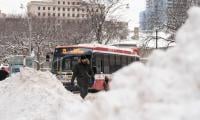Food crisis
A friend, a young journalist in Gaza, Mohammed Rafik Mhawesh, told me that food prices in the besieged Strip have skyrocketed in recent weeks and that many already impoverished families are struggling to put food on the table.
“Food prices are dramatically surging,” he said, “particularly since the beginning of the Russia-Ukraine war.” Essential food prices, like wheat and meat, have nearly doubled. The price of a chicken, for example, which was only accessible to a small segment of Gaza’s population, has increased from 20 shekels (approx. $6) to 45 (approx. $14).
These price hikes may seem manageable in some parts of the world but in an already impoverished place, which has been under a hermetic Israeli military siege for 15 years, a humanitarian crisis of great proportions is certainly forthcoming.
In fact, this was also the warning of the international charity group Oxfam, which on April 11 reported that food prices throughout Palestine jumped by 25 percent but, more alarmingly, wheat flour reserves in the Occupied Territories could be “exhausted within three weeks”.
The impact of the Russia-Ukraine war has been felt in every part of the world, some places more than others. African and Middle Eastern countries, which have been battling pre-existing problems of poverty, hunger and unemployment, are most affected. However, Palestine is a whole different story. It is an occupied country that is almost entirely reliant on the action of an occupying power, Israel, which refuses to adhere to international and humanitarian laws.
For Palestinians the issue is complex, yet almost every aspect of it is somehow linked to Israel.
Gaza has been under an Israeli economic blockade for many years, and food that Israel allows to the Strip is rationed and manipulated by Israel as an act of collective punishment. In its report on Israeli apartheid published last February, Amnesty International detailed Israeli restrictions on Palestinian food and gas supplies. According to the rights group, Israel uses “mathematical formulas to determine how much food to allow into Gaza”, limiting supplies to what Tel Aviv deems “essential for the survival of the civilian population”.
Aside from many infrastructure issues resulting from the siege – lack of clean water, electricity, farming equipment, etc – Gaza has also lost much of its arable land to the Israeli military zone established across border areas throughout the Strip.
The West Bank is not much better off. Most Palestinians in the Occupied Territories are feeling the growing burden – the Israeli occupation, compounded with the devastating impact of the Covid-19 pandemic and structural weaknesses within the Palestinian Authority, rife with corruption and mismanagement.
The PA imports 95 percent of its wheat, Oxfam says, and owns no storage facilities whatsoever. All of such imports are transported via Israel, which controls all of Palestine’s access to the outside world. Since Israel itself imports nearly half of its grains and cereals from Ukraine, Palestinians are, therefore, hostage to this very mechanism.
Israel, however, has been amassing food and is largely energy independent, while Palestinians are struggling at all levels. While the PA should shoulder part of the blame for investing in its ‘security’ apparatus at the expense of food security, Israel holds most of the keys to Palestinian survival.
With hundreds of Israeli military checkpoints dotting the occupied West Bank, cutting off communities from one another and farmers from agricultural land, sustainable agriculture in Palestine is nearly impossible.
Excerpted: ‘Palestine Needs Immediate Attention to Stave Off Major Food Crisis’.
Courtesy: Counterpunch.org
-
 Meghan Markle’s Family Shares Important News Amid Estrangement
Meghan Markle’s Family Shares Important News Amid Estrangement -
 BAFTA, BBC, And Tourette’s Advocate John Davidson Issue Formal Statements For His Onstage Slur
BAFTA, BBC, And Tourette’s Advocate John Davidson Issue Formal Statements For His Onstage Slur -
 Kanye West's Malibu Beachfront Mansion Enters Controversy Again As Ex-employee Seeks $1M In Alleged Unpaid Wages
Kanye West's Malibu Beachfront Mansion Enters Controversy Again As Ex-employee Seeks $1M In Alleged Unpaid Wages -
 Tom Hanks To Lead Experimental Biopic About Distant Relative Abraham Lincoln
Tom Hanks To Lead Experimental Biopic About Distant Relative Abraham Lincoln -
 'CIA' Starring Tom Ellis Promises Fresh Take Beyond FBI Franchise
'CIA' Starring Tom Ellis Promises Fresh Take Beyond FBI Franchise -
 Congressman Tony Gonzales Faces Resignation Calls Amid Investigation
Congressman Tony Gonzales Faces Resignation Calls Amid Investigation -
 Royal Family Not Allowed To Play THIS Fun Game: ‘It Gets Too Vicious’
Royal Family Not Allowed To Play THIS Fun Game: ‘It Gets Too Vicious’ -
 Heidi Klum Exposes Harsh Modeling Rule She Faced While Expecting
Heidi Klum Exposes Harsh Modeling Rule She Faced While Expecting -
 US Women’s Hockey Team Skips State Of The Union After Gold Medal Win
US Women’s Hockey Team Skips State Of The Union After Gold Medal Win -
 Toronto Weather Forecast: Snow Storm Advisory Lifted After Icy Conditions
Toronto Weather Forecast: Snow Storm Advisory Lifted After Icy Conditions -
 How ‘deafness’ In Andrew Scandal Has Changed Monarchy ‘forever’
How ‘deafness’ In Andrew Scandal Has Changed Monarchy ‘forever’ -
 Gisele Bundchen Drops Postpartum Workout Secret She Calls A 'game Changer'
Gisele Bundchen Drops Postpartum Workout Secret She Calls A 'game Changer' -
 1 In 5 Teens Exposed To Unwanted Sexual Content On Instagram, Report Finds
1 In 5 Teens Exposed To Unwanted Sexual Content On Instagram, Report Finds -
 US Judge Aileen Cannon Issues Permanent Order In Trump Documents Case
US Judge Aileen Cannon Issues Permanent Order In Trump Documents Case -
 King Charles, Royals Are Not ‘bright’ Enough To Live In Mansions
King Charles, Royals Are Not ‘bright’ Enough To Live In Mansions -
 'Final Throw Of The Dice': Paramount Submits Highest Bid Offer To Warner Bros. In Last Round
'Final Throw Of The Dice': Paramount Submits Highest Bid Offer To Warner Bros. In Last Round



